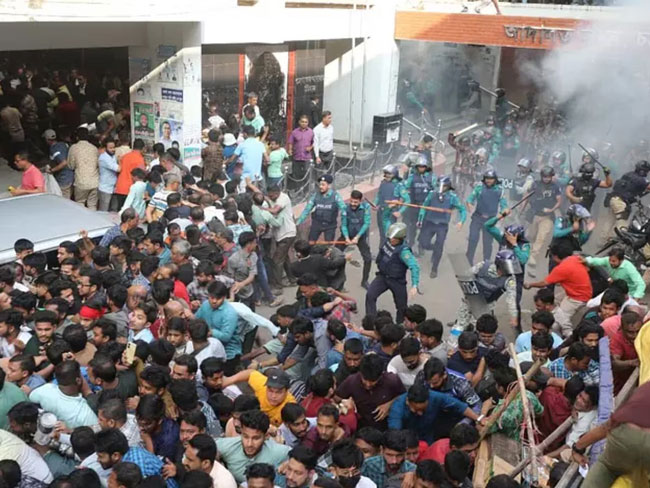The Supreme Court of India on Monday dismissed a public interest litigation (PIL) seeking protection for Hindu minorities in Bangladesh. A bench comprising Chief Justice of India (CJI) Sanjiv Khanna and Justice Sanjay Kumar clarified that Indian courts cannot interfere in the internal matters of a foreign country.
What Was the Petition About?
The PIL was filed by Rajesh Dhanda, President of the Bhagwan Jagannath Rath Yatra Mahotsav Committee in Ludhiana and Vice President of the ISKCON Temple Management Board. The petition sought measures to stop attacks on Hindu minorities in Bangladesh and ensure their safety. It also urged the Indian government to provide assistance to Hindus living in Bangladesh and to exert international pressure on the neighboring country to curb violence against minorities. Additionally, the petition requested an extension of the deadline for Hindu migrants from Bangladesh to apply for Indian citizenship.
Supreme Court’s Stand
During the hearing, CJI Sanjiv Khanna stated, “This is a foreign matter, and this court cannot interfere in the affairs of another country.” He emphasized that it would not be appropriate for India to intervene in the internal issues of a neighboring nation. Following this statement, senior advocate Mukul Rohatgi, representing the petitioner, withdrew the PIL, leading to its dismissal by the Supreme Court.
Attacks on Hindus in Bangladesh
In recent years, attacks on Hindu minorities in Bangladesh have reportedly increased. According to reports, between August 5 and August 20, 2024, a total of 1,068 attacks on Hindus were recorded across 49 districts in Bangladesh. By December 2024, this number had risen to over 2,200. These incidents involved vandalism of Hindu temples, homes, and shops, as well as cases of looting and killings.
India’s Response
So far, the Indian government has not issued an official statement on this matter. Officials from the Ministry of External Affairs maintain that diplomatic discussions are the preferred approach to addressing issues concerning neighboring countries.
The Supreme Court’s decision highlights India’s judicial stance of refraining from interfering in the internal matters of other nations.




